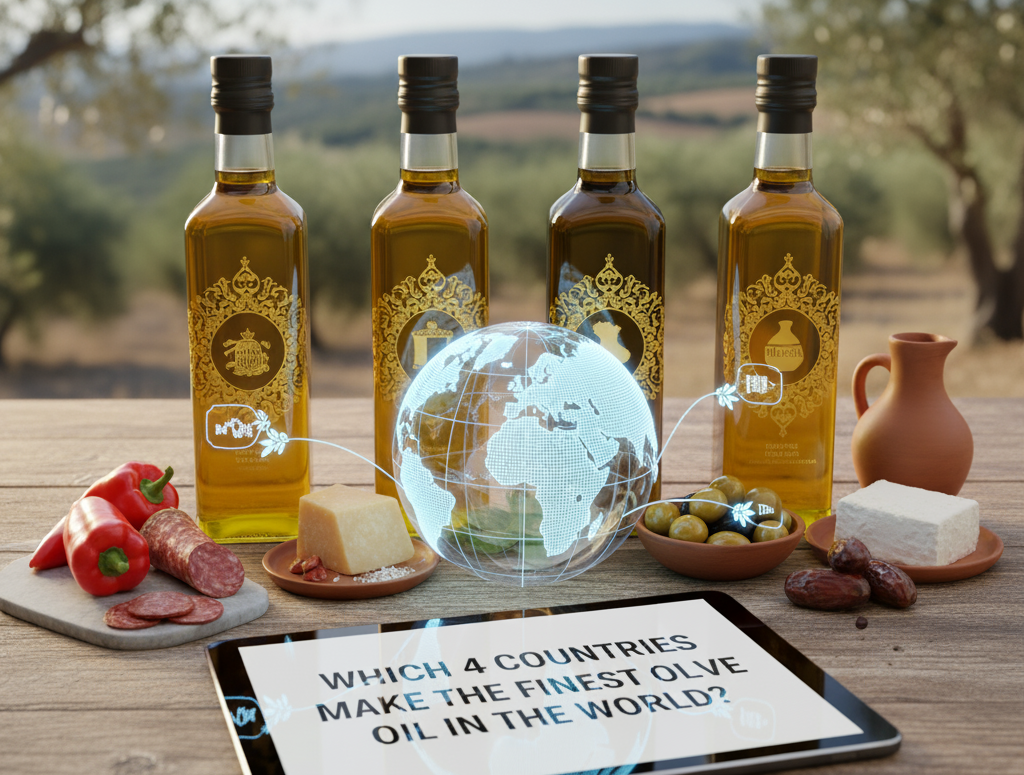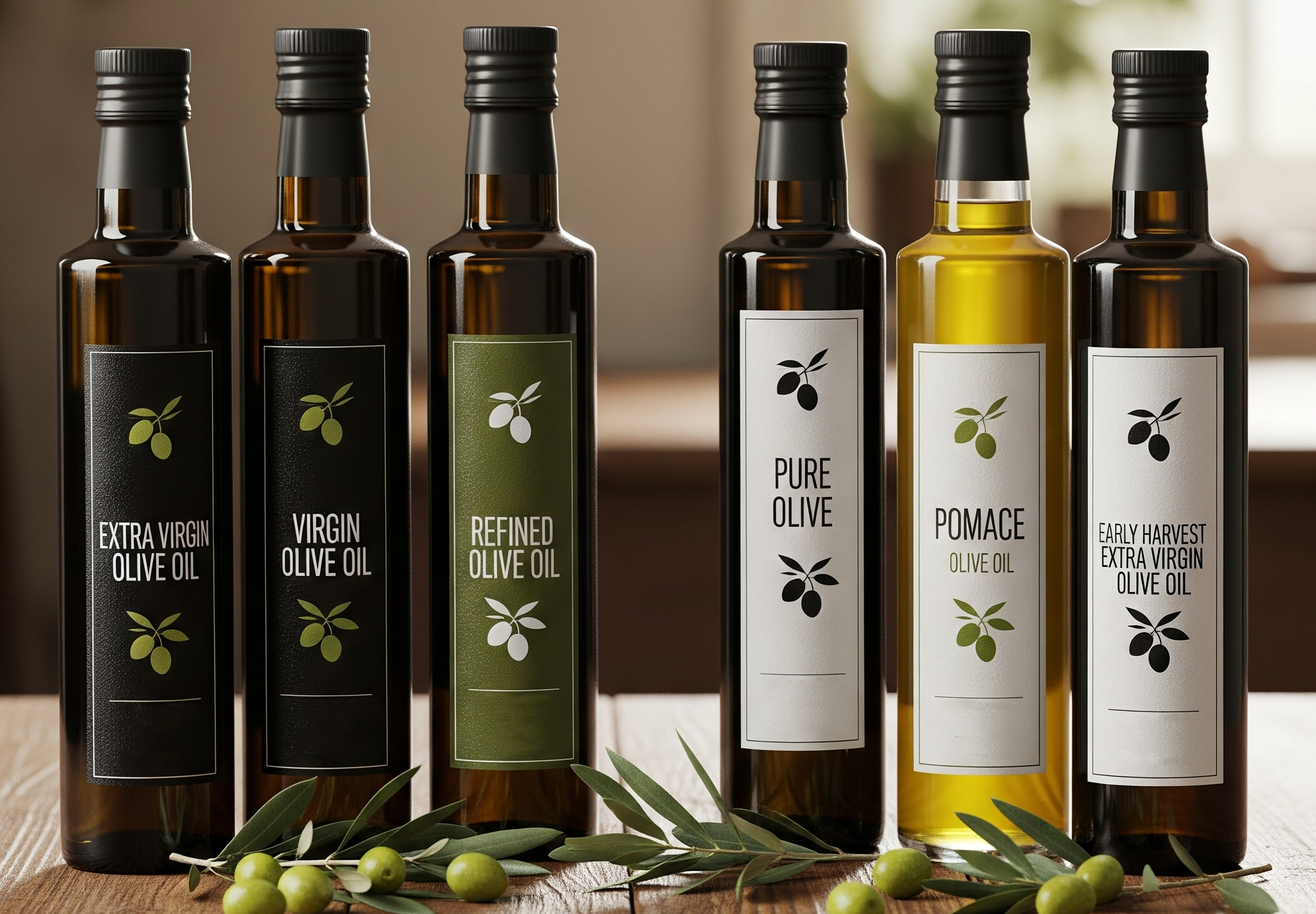
Which 4 Countries Make the Finest Olive Oil in the World?
Olive oil has been treasured for thousands of years, not only as a cooking ingredient but also as a cultural and even spiritual symbol. From ancient Mediterranean civilisations to today’s modern kitchens, it continues to represent quality, purity, and flavour. But not all olive oils are created equal. Climate, soil conditions, olive varieties, and harvesting techniques all play a role in determining which oils rise above the rest.
So, which countries consistently deliver the very best Extra Virgin Olive Oil cold pressed and organic varieties? Let’s take a journey through the four nations most celebrated for their craftsmanship and excellence: Italy, Spain, Greece, and Tunisia.
1. Italy: The Timeless Icon of Olive Oil
When most people think of premium olive oil, Italy is the first country that comes to mind, and with good reason. Italians have perfected the art of olive oil production, blending centuries of tradition with modern innovation.
Regions that matter most: Tuscany, Puglia, Liguria, and Sicily each bring unique characteristics to their oils.
Taste profile: Italian oils often range from smooth and buttery to bold and peppery, making them versatile for drizzling, dipping, and cooking.
Cultural connection: In Italy, olive oil is more than food; it’s a cultural symbol tied to family meals, heritage, and the Mediterranean lifestyle.
Premium Italian Extra Virgin Olive Oil Organic is known for balance and complexity, often with grassy, fruity aromas and a peppery finish that lingers on the palate.
2. Spain: The World’s Largest Olive Oil Producer
Spain doesn’t just produce olive oil, it dominates the global market, accounting for nearly half of worldwide production. With its diverse climate and vast olive groves, Spain delivers oils that are consistent, high-quality, and internationally respected.
Top-producing region: Andalusia, particularly Jaén, is known as the “olive oil capital of the world.”
Olive varieties: Arbequina, Picual, and Hojiblanca are the most famous, each offering distinctive flavours.
Taste profile: Spanish oils can be delicate and fruity or bold and peppery, making them a perfect match for everything from light salads to rich stews.
Spain is also a leader in extra virgin olive oil wholesale, offering excellent value to distributors and food manufacturers around the globe.
3. Greece: Olive Oil with Ancient Roots
Greece has been producing olive oil for over 4,000 years, and it remains central to Greek cuisine, health, and culture. Olive oil here is considered almost sacred, with ancient myths even attributing the olive tree’s gift to the goddess Athena.
Renowned regions: Crete, Kalamata, and the Peloponnese produce some of the country’s finest oils.
Taste profile: Rich, fruity, slightly bitter, with peppery undertones, a flavour that reflects Greece’s rugged landscape and Mediterranean climate.
Health benefits: Greek Organic Extra Virgin Olive Oil is high in antioxidants and polyphenols, contributing to the heart-healthy Mediterranean diet.
For Greeks, olive oil is more than a cooking ingredient, it’s woven into their identity and traditions, from religious rituals to family gatherings.
4. Tunisia: North Africa’s Olive Oil Treasure
Though sometimes overlooked, Tunisia is one of the largest exporters of olive oil in the world, and its quality is finally getting the recognition it deserves. Tunisian oils have won awards in international competitions and are increasingly sought after by gourmet chefs and health-conscious consumers.
Unique growing conditions: Tunisia’s Mediterranean climate and fertile soil create olives with distinct flavour profiles.
Taste profile: Often fruity, aromatic, and slightly nutty, with a smooth finish that pairs well with both savoury and sweet dishes.
Global impact: Much of Tunisia’s oil is exported in bulk olive oil for cooking or blended with European oils, but premium single-origin Tunisian oils are now gaining popularity for their authenticity.
What Makes Olive Oil “the Best”? (Reddit Insights)
A lively discussion on r/Cooking highlighted that “really good” olive oil isn’t just about where it comes from, it’s about specific qualities that indicate freshness, authenticity, and flavour:
- Single origin matters: Look for bottles that clearly state one country of origin, not a blend of multiple.
- Freshness is key: Always check for a harvest date. Olive oil is best enjoyed within 12–18 months of pressing.
- Flavour profile: The best oils taste grassy, fruity, or peppery, not bland. A little bitterness and spice at the back of your throat is a sign of quality.
- Low acidity: Premium oils have very low acidity, which translates into purity and health benefits.
- Dark bottles & packaging: High-quality oils are packed in dark glass or tins to protect from oxidation.
- Cooking vs finishing oils: Everyday olive oil is perfect for sautéing, but truly premium oils should be saved for raw use—like drizzling or dipping.
- Beware of fraud: Some big brands blend or dilute their oils. Trust transparent producers.
4 Rules for Buying the Best Olive Oil (NYT Cooking Insights)
To make sure you’re investing in the best, consider these expert rules from NYT Cooking:
- Go for Extra Virgin Olive Oil cold pressed – It retains maximum flavour and antioxidants.
- Buy small and fresh – Olive oil is best when consumed young, so avoid bottles that have been sitting too long.
- Check the source – Opt for oils with a harvest date and a single origin label.
- Choose the right use – Everyday oils, including extra virgin olive oil, are perfect for cooking, while premium bottles should be reserved for finishing dishes.
Conclusion: Four Nations, One Passion
Italy, Spain, Greece, and Tunisia may differ in climate, traditions, and production methods, but they all share one thing: a deep passion for crafting olive oil that reflects their land, culture, and history. Whether you prefer the bold intensity of Tuscan oil, the variety of Spanish blends, the purity of Greek tradition, or the rising excellence of Tunisian oils, each bottle tells a story of craftsmanship and dedication.
Next time you drizzle olive oil over fresh bread, pasta, or grilled vegetables, remember—you’re tasting not just a flavour, but a centuries-old tradition carried on by the world’s finest producers. And whether you’re buying extra virgin olive oil wholesale or simply shopping for everyday bulk olive oil for cooking, these four countries remain the global leaders.
Entradas relacionadas
Clasificación del Aceite de Oliva: Desde Extra Virgen hasta Orujo – Lo que Todo Chef y Negocio de Alimentos Debe Saber
Understanding olive oil classifications can transform your culinary experience and business success.
Por qué invertir en aceite de oliva al por mayor es una decisión inteligente
La industria mundial del aceite de oliva está prosperando, ofreciendo oportunidades incomparables para las empresas y en...
El mejor lugar para comprar aceites esenciales al por mayor: cómo encontrar proveedores de confianza en 2025
The essential oils market continues to thrive, making it a lucrative industry for entrepreneurs and





Deja una respuesta